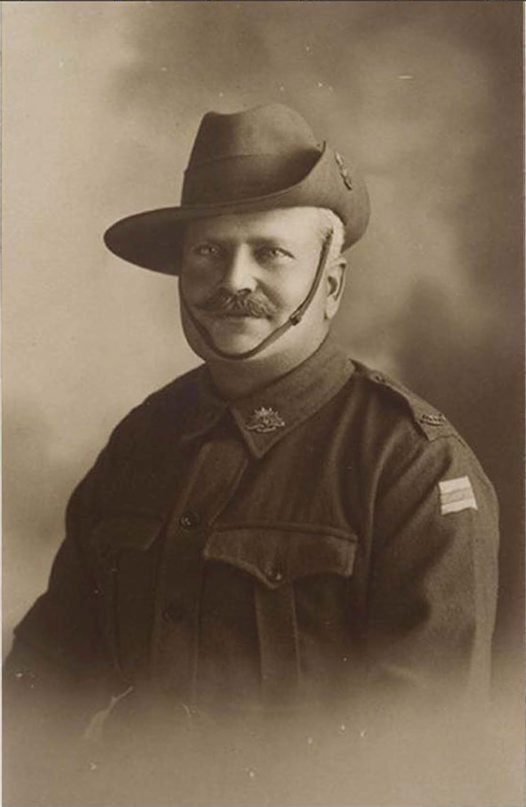Our Global Neighbours: Private Potter in Service
Ethnography, anthropology, museology and taxidermy were William Potter’s passion. His deployment with the Tropical Unit of the Second Infantry Battalion in German New Guinea helped to put his interest into practical use.
Mr Potter was born (1874) and evidently grew up in India, where he was associated for seven years with Bombay Volunteer Rifle. Later he lived in Sydney, had a clerical job, wife Hannah and one child. He was aged 40 when he joined the Australian Army in 1914. Private Potter found his vocation in a remote jungle outpost, where he began collecting indigenous artefacts and natural history specimens for the Australian Museum in Sydney and the Queensland Museum in Brisbane.

© Courtesy of the State Library of New South Wales.
Potter’s correspondence with the Queensland Museum was more abundant, and research into his life and work is being conducted by Mark Clayton, Senior Curator of Social History. While awaiting a comprehensive study, I can offer only biographical snippets of a man formally recognised as the official collector of specimens for the Australian Museum.
His first shipment of artefacts from Madang Province arrived in 1916 and they continued through to 1918. His field of operation expanded later into Bougainville, Buka and the Solomon Islands. Potter applied himself to this fascinating job in addition to, one would imagine, his regular military duties.
The depth of his passion is illustrated by his deeds. At the end of his active service in April 1918, discharged from the Army, Mr Potter does not return home to Sydney. Instead he boards a ship sailing to United Kingdom. Apparently Potter spent some time at the British Museum as taxidermist, before returning home in 1919.
I would like to know why our Potter joined the army. Was it a deliberate life changer, an equivalent of our proverbial sea change? It does not look like an attempt for a military carrier. It was rather an opportunity to get away from Sydney, to remote tropical jungle, unexplored regions with different insects, birds, animals and plants, as well as peoples uniquely original and intriguing in their rich cultural practices. An adventure – perhaps?
I hope that historical study will unravel the mystery of Private Potter for us, and we’ll understand human motives in his interesting life in science during the upheavals of the Great War.

